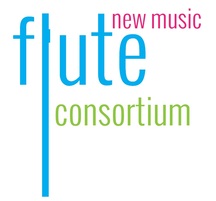Get to Know...Julie Barwick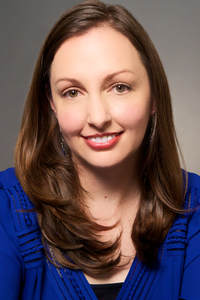 Flutists love a good duet! We can always find a friend to play with and they’re great to program on guest artist programs with the hosting teacher as well as for flute fairs/conventions, and of course, to use with our students to help them improve as chamber musicians. Julie Barwick has introduced us to another great option this year with Conversations for two flutes (flute two doubles on alto flute). Conversations was a finalist work in the flute duo category. You can listen to a great recording on Julie's SoundCloud page. Julie has several other works for flutes, including a recently completed flute trio, Personal Space, commissioned by Areon Flutes. We were also excited to see that Julie is an advocate for women in the creative arts through her Helia Arts Collective. As an organization run by women, we’re always super excited to see women advocating for the arts and female composers. Julie is joining a fantastic group of female composers who have found success in our completely blind competition. Of the 13 winning compositions, five were written by women and eight of twenty-seven winning and honorable mention works were composed by women. Overall of the forty-six composers who have been selected as finalists, honorable mentions or winners roughly a quarter (11/46) are women and two of them were finalists in multiple years! Of the total pieces honored, 14 out of 56 (an exact quarter) are by women! We’ve loved seeing that the blind process has resulted men and women, young and old(er) (18-72), from all over the US and fifteen countries being honored for their work. We love that your background is irrelevant in our competition, your music speaks for itself! Q&A with Julie… What about new music for the flute appeals to you? As a composer, I find the extreme versatility and agility of the flute very exciting. The wealth of sounds that can be created with just a solo flute is astounding. In my experience, I also find flutists to be some of the most dedicated and open-minded musicians, especially when it comes to creating new music. I wrote Conversations for Siroko Duo (Jessie Nucho and Victoria Hauk) and not only are they both amazing flutists, open to nearly anything, but they are also strong champions of commissioning and performing new music. Who are your favorite “new music” composer/s and why? The list of my favorite new music composers is impossibly long, but I do want to highlight the Common Sense Composers Collective, and especially the composers Belinda Reynolds, Dan Becker, and Marc Mellits. They have inspired me through their teaching (I have both studied with Becker and Reynolds), their collective philosophy that emphasizes collaboration, and of course their music. Describe your current activities. Currently, I am focused on two main projects. The first is I am the 2017-18 Composer-in-Residence for Elevate Ensemble, a San Francisco Bay Area new music ensemble. I have two commissions from them, and currently working on the second, a chamber symphony. I am also a recent co-founder of Helia Music Collective. I formed Helia Music Collective with fellow composer, Emma Logan, as way for us to support the creative endeavors of women in music. Earlier this year we had our first concert/collaboration with Siroko Duo that featured all new music written by women. We are currently planning our next project for 2018. Do you have any upcoming events that you would like our friends and followers to know about? As mentioned above, as part of my residency with Elevate Ensemble, I'm working on a commission for chamber symphony (including one flute!), to be paired with Schoenberg's pivotal Chamber Symphony. The concert will be at SOMArts in San Francisco, May 19. Details about the concert can be found here: https://elevateensemble.com/events/transformations/ More About Julie… Julie Barwick (b. 1983), is a composer and pianist originally from Southern California and now based in San Francisco. Drawing inspiration from her classical and jazz background, she not only enjoys writing for traditional chamber music ensembles, but also non-traditional ensembles as well as experimental jazz groups. Her music has been performed throughout the Bay Area and US, and was recently selected to be on the Verdant Vibes Benefit Concert in Rhode Island in February 2017. As a winner of the 2016 Areon International Composition Competition, she was commissioned to write her piece, Personal Space, for Areon Flutes. Julie is currently Elevate Ensemble’s 2017-18 Composer-in-Residence, and will be writing two new pieces for Elevate this season. Other recent projects include commissions from San Francisco Guitar Quartet, Siroko Duo, Jill Morgan Brenner, Carla Fabris, Andronica Trio, Hot Air Music Festival, and Ignition Duo through the Guerrilla Composers Guild. Julie received her B.A. in music from the University of California, Berkeley and her M.M. in music composition from the San Francisco Conservatory of Music. She has studied with composers Belinda Reynolds, Dan Becker, David Garner, Cindy Cox, and Henry Threadgill. Please visit her website at juliebarwick.com to learn more. If you liked Conversations… Flute only
Chamber, with flute
0 Comments
Get to Know...JP Merz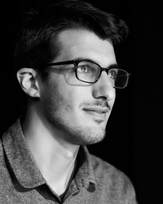 Many people might look at a score for two piccolos and electronics and say, “No Way!” Not our members, a lot of our members love to play the piccolo and drops on a living surface the winning work in the flute duo category this year is garnering a lot of interest from the membership. Composer JP Merz describes the pieces as one that “imagines the cone of a loudspeaker as a thin barrier between the physical and digital world -- a surface for drops of electricity to come alive. These drops begin quietly, almost bell-like, and accumulate into a majestic, electric rainstorm.” He skillfully exploits all of the ranges and colors the piccolo can produce in a really interesting work for a rare instrumentation. We think you’ll agree, there are two performances available on JP’s website. photo credit-Owen Zhou Q&A with JP… Describe your musical background and current activities. My love of music-making began in southern Wisconsin playing guitar in rock/jazz bands, viola in orchestra, and making strange electronic tracks on my family's computer. I always enjoyed creating in whatever style I was in, but when I was exposed to even more traditions in college, I became overwhelmed by the possibilities. At some point I realized that composition can focus all of my interests into one practice. Much of my work is concert music for classically-trained musicians but I frequently draw on my previous experiences in other traditions and also enjoy collaborating with musicians and artists from different backgrounds. I’ve made string quartets, electro-acoustic works, arrangements for singer-songwriter albums, custom performance software, feed-backing robotic objects, a voice controlled massage chair installation, among other things. Who is/are your favorite “new music” composer/s and why? Too many to list, but my one sentence answer is usually: anyone on New Amsterdam Records for their efforts in democratizing genres and supporting stylistically diverse projects. If I were to name a single, independent composer though, it would be Meredith Monk. Her relentless exploration of the voice and ability to convey emotion and story without words is always inspiring to me. What about new music for the flute appeals to you? Obviously the versatility and huge range of color is amazing to work with. But for me the main appeal is working with flutists themselves, who are always so supportive and excited about new music. That feeling comes from working directly with enthusiastic flutists on a pieces of mine, seeing flute teachers encouraging their students to work with composers or through the awesome efforts of FNMC. What advice can you give to flutists about approaching new music in practice? Don’t be afraid to take risks, try new things and truly interpret the music. In my opinion this is true for all music really, but especially for brand new or rarely performed works. As a composer, it’s a great feeling when the performer is more focused on making the piece their own rather than worrying about playing it “correctly” or even the way I intended. More About JP… JP Merz is a composer who works with classical, jazz, and rock musicians, as well as improvisers, dancers, electrical engineers, internet researchers, programming languages, and robots. His recent work explores intimate, emotion-driven, and kinesthetic experiences of sound. JP’s work has been performed by members of the JACK Quartet, Altius Quartet, Playground Ensemble, Iowa Center for New Music, and Colorado Music Festival Orchestra at places such as the Weill Hall of Carnegie Hall, New Music Gathering, Boulder Museum of Contemporary Art, Madison New Music Festival, San Francisco Fringe Festival, the Abrons Arts Center, record stores, coffee shops and living rooms. In 2016, he received support from the American Composers Forum's JFund for New Music and interned with his favorite new music series, Liquid Music. In addition to composing, JP performs on electric viola, guitar, and electronics with an eclectic variety of groups ranging from new music/improv ensembles to folk-rock bands. This fall he began his DMA in composition at the University of Southern California. http://www.jpmerz.com/ If you like drops on a living surface… an eagle flew Year of Composition: 2015 Instrumentation: soprano, viola, flute, and piano Duration: 5’05” Out, out Year of Composition: 2013 Instrumentation: flute and electronics Duration: 11’24” Get to Know...Jake Thiede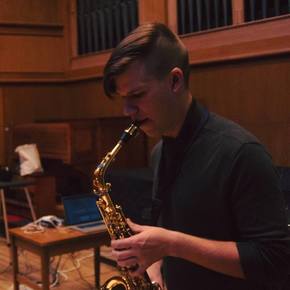 The flute and accompaniment category has traditionally been a very strong category with multiple high quality works and 2017 was no exception. Jake Thiede’s work for flute and computer And everything in-between was awarded the honorable mention in the flute and accompaniment category. Interestingly, this is the second work featured in the “12 Days of Composer-mas” that involved specific calculations in the compositional process (the other is from 2016, Daniel Miller’s Contrails for flute and electronics.) Although, you don’t hear this in either work, both are really engaging and masterful compositions with interesting musical ideas and colors. And everything in-between was commissioned by Krisztina Dér for flute and electronics with lighting. You can view a video of the performance on Jake’s website featuring Krisztina’s masterful performance of the work! We truly enjoyed her beautiful playing. We look forward to hearing performances of And everything in-between by our members very soon, we have a feeling it will soon be joining the standard repertoire of works for flute and electronics. Q&A with Jake… What about new music for the flute appeals to you? The liberation of sound that the instrument has experienced in the last half century. The flute has so many different timbres...and so many more to be discovered. As a saxophonist, I'm jealous of the flute's wide range of controlled dynamics and how many more octaves it can play than the saxophone. Who is/are your favorite “new music” composer/s and why? Right now I'm listening to a lot of Eric Lyon, David Lang, and György Ligeti. I think what draws me to their music (and influences my own music) are the varying degrees of clarity with touches of irony. What is/are your favorite “new music” piece/s and why? As of late, Michael Laurello's "Big Things." His use of different rhythmic systems and ride rhythms encourage me that there is just as much innovation/experimentation waiting to happen in rhythm as harmony or timbre. Describe your musical background and current activities. I grew up learning Suzuki piano and then played in a metal band through parts of high school and college. This mixture of classical and vernacular styles, cultures, and traditions in my musical upbringing has pushed me to challenge how I understand music and art to this day. I'm still learning... Do you have any upcoming events that you would like our friends and followers to know about? I will be performing my piece "While it was raining in the woods" at the 2018 SCI National Conference at the University of Puget Sound in Tacoma, WA sometime between March 1st-3rd. If any of my flute playing friends are there, let me know--we can hang out! More About Jake… Jacob (Jake) Thiede is a composer, saxophonist and current PhD student at the University of North Texas. Recently, his music has been championed by the Red Clay Saxophone Quartet, the 15.19 Ensemble, STACKS Duo, and pianist Kris Carlisle. Premieres and performances of Jake’s music have taken place in Italy and the United States, including Georgia, Hawaii, Iowa, Kentucky, Louisiana, North Carolina, Ohio, Tennessee, Texas, and Vermont. Recent honors and festivals include the Bowling Green State University Graduate Music Conference (2017), the National Student Electronic Music Conference (2016 & 2017), the Electric LaTex Conference (2016 & 2017), New Music on the Point (2015), and the HighSCORE Festival (2014). He received his BME at Murray State University and MM in music composition at the University of North Carolina at Greensboro. He has studied with Mike D'Ambrosio, Brian Ciach, and John Fannin at Murray State and with Mark Engebretson, Alejandro Rutty, and Steven Bryant at UNCG. As a saxophonist, he has studied with Scott Erickson and Steven Stusek. Current interests are grooves and rhythms in metal music, glitch, and the manipulation of sine tones. Jake studies composition with Kirsten Broberg and Andrew May as well as saxophone with Eric Nestler at the University of North Texas. www.jaketheedee.com/ If you liked And everything in between… Forgotten Places, Abandoned Buildings Instrumentation: pierrot ensemble Date of Composition: 2016 Get to Know...Daniel Miller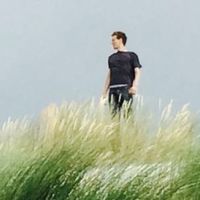 One of the most interesting elements of the composer features is to learn more about the inspiration for the works. We found it really fascinating to learn about the way Daniel Miller conceived of Contrails for flute and three-channel live electronics. Contrails was awarded the Honorable Mention in the flute and accompaniment category in 2016. Daniel began with the idea of a contrail, a trail left behind after something’s passing, and interpreted it in several ways. We can’t describe it better than Daniel, so we’ll quote from the program notes for the work “The electronics serve as a “contrail” to the flute, capturing and sustaining certain resonant frequencies of the flute’s sound. The whole work is also a contrail of Bach’s aria, “Aus Liebe Will Mein Heiland Sterben” from St. Matthew’s Passion, about the compassion of Christ’s self-sacrifice. Most of the material in this piece was derived from a spectral analysis of the aria. An original computer algorithm running in ACToolbox was used to “morph” smoothly between spectrally generated material and the original flute melody found in the aria. This interpolation occurs in nearly every parameter of the music (rhythm, pitch, dynamics, etc.). The effect is that one musical idea gradually recedes from the texture revealing a second idea hidden within or beneath it. As this patina dissolves, notes or phrases from the original aria are sometimes heard to emerge from the resonant, fluttering abyss from which the work begins.” Sometimes, we’ve found that works strongly based on an algorithm are fascinating in their construction, but lack a certain emotional content. This is not the case in Contrails it is a beautiful and haunting work, a testament to Daniel’s skills as a composer! Daniel is currently studying in India on a Fulbright Fellowship, we look forward to hearing new music inspired by his research and collaborations in Mysore! Q&A with Daniel… Describe your musical background and current activities. I've been lucky to have had an unremittingly varied and adventurous introduction to various sound practices. Although I have an undergraduate degree in contemporary music theory and composition, I also spent a year studying with "outsider" sound artists on three continents, developing an eccentric "prepared" field-recording practice through travels as a Thomas J. Watson Fellow. In 2015, I followed-up on my passion for intersections between music and technology, completing a master’s degree in digital musics at Dartmouth College. Currently I'm a Fulbright-Nehru Fellow based in Mysore, India, where my research and music composition has reflected various collaborations with Indian musicians and sound artists in and around the Bangalore scene. What about new music for the flute appeals to you? The flute is a very somatic instrument. The physicality of the lips and mouth and lungs and hands are very present in the sound, unmediated by strings or hammers or even a reed. I'm really interested in how that manifests in music and in performance, especially in the moments between steady, stable states where standing waves or controllable musical gestures start to break down. In composition, I want to explore how the artifice of stability and control can be peeled back to reveal the chaotic flux saliva, air pressure, and metallic movement. Tell us a bit about your compositional process. I consider myself a composer/programmer. A lot of my works are composed with the assistance of computer programs, either for pre-compositional calculations or for live audio processing and/or synthesis. More About Daniel… A native of Seattle (USA), Daniel Miller is a composer, programmer, instrument builder, and field recordist. His creative practice centers on perceiving and responding to the vitality latent in simple processes, materials, and technologies. Recent creative interests have included explorations of found objects, live animated interactive scores, and feedback cycles between performers and stochastic processes or acoustic automata. Daniel’s music has been performed in North America, Europe, and Asia. Past collaborators include Nouvel Ensemble Moderne, ensemble mise-en, the International Contemporary Ensemble, Ensemble l'Itinéraire, Sound Energy Trio, the NOW Ensemble, and Ensemble MotoContrario. His electroacoustic works have been accepted by conferences of the Society for Electroacoustic Music in the United States (SEAMUS) and the International Computer Music Association (ICMC), and his research on visual score representation and notation has been featured at the International Conference on Technologies for Music Notation and Representation (TENOR). In 2013 he was a recipient of a Thomas J. Watson Fellowship, a grant that made possible twelve months of research on music and technology in seven countries. In 2016 and again in 2017 Daniel was a recipient of the BMI Student Composer Awards. A former student of the Conservatorium van Amsterdam, Daniel is a recipient of degrees in music composition and philosophy from Lawrence University. Most recently he received his masters degree in Digital Musics from Dartmouth College where he was a music composition student of Ashley Fure. Daniel is currently a Fulbright-Nehru research fellow based in Mysuru, India, where he is advised by Dr. Mysore Manjunath at the University of Mysore. www.lontanomusic.com If you liked Contrails…. Hoquetus Perindens Date of Composition: 2012 Instrumentation: flute, clarinet, electric guitar, double bass, piano Duration: 3’ Ritual On a Poem By Whitman Date of Composition: 2012 Instrumentation: alto flute (doubling on flute), percussion (3 players), soprano, tenor, live electronics. Duration: 6’ Vela Sierra Date of Composition: 2016 Instrumentation: bass flute, accordion, violin, viola, double bass, and synthesizer Just for Fun-Maps of 2017 EntriesWe're looking forward to introducing you to the 2017 winners and finalists very soon. In the meantime, we always find it fascinating to see from which countries composers submitted entries. We're excited to see entries from five of the six inhabited continents this year! For the purposes of this map, we used the address of submission although many composers are living in a country outside the country of their birth. For example, Minzou Lu, honorable mention in the flute duo category, is Chinese but lives in Germany so she has been recorded in Germany. Below is the world map. Although it is not possible to select them as discrete countries, we received entries from Hong Kong and Scotland. It may be also be difficult to see Israel. We're also excited to show the breakdown by US state this year. It's pretty exciting to see composers from all around the country entering our competition! Finally, we're happy to share a map detailing the homes of the winning and finalist composers. IWe are so grateful that the contest provides the opportunity for us to become familiar with composers from all over the world! We know we probably would not otherwise have the opportunity to become familiar with their wonderful music! Note: we were unable to indicate this but this year, there was both a winner (JP Merz) and a finalist (Julie Barwick) from California.
Interview with Robert Denham
A CONVERSATION WITH ROBERT DENHAM
2016 Composition Competition Winner On the Departure of a Loved One for Flute and Piano Interview by Pyero Talone Transcript Below:
Pyero: Can we start by you telling us a little about yourself?
Robert: Certainly. I’m a native of the San Francisco Bay Area of California. I grew up there and probably spent 20 years of my life there. I then came down here and attended Biola University as a trumpet performance major, so that’s my background, instrumentally. While I was working on my trumpet performance degree and freelancing in the Los Angeles area, I became interested in composition and entered a few contests that were within the school. I placed in those contests and became very excited about composition, so that caused me to start thinking of going into composition as a profession. A lot of my friends were pushing me towards that, so I went ahead and explored that. I did my MA in composition at UCLA and then went on to the University of Cincinnati College Conservatory of music for my doctorate in composition. At that point, I had taught at a few universities, but then went on to teach full time at West Texas A&M for just a year, at which time I moved on to Biola University. This is my tenth-year teaching at Biola, serving as the area coordinator for theory and composition. It’s a department of about 30 composition majors, so it’s a thriving department. We’re really excited about what we have here. Pyero: I really loved On the Departure of a Loved One and I know that it comes from a concerto you wrote, right? Can you tell us about your inspirations behind it and your compositional process? Robert: Certainly. Well, the background of the piece – I was asked by a friend of mine, Brian Bensing, who was the person I dedicated this to. He asked me to write this concerto so he could play it with the Cambrian Symphony. He’s part of that symphony up in San José. And I was short on time but had to produce something for a particular concert, so I thought, why not kill two birds with one stone: I’ll write the middle movement of the concerto and go ahead and write it just for piano and flute. Because it was the second movement, it didn’t take me so much time to write. The faster movements, because they have more notes, take a longer time to write and format. So that’s why I started with the second movement. I love the second movements of the Barber Concertos. Samuel Barber wrote several concertos: a piano concerto, a cello concerto, a violin concerto. That middle movement right there seems to be an opportunity for him to express things that are more intimate and more close to his heart: sorrow, grief- things that are more personal, I think. Because, of course, the first movement of a concerto is bringing the audience in, it’s not bringing up anything terribly controversial or terribly emotional. But that inner movement, framed as it is against the outer movements, is an opportunity to do that. So I think that all of us have at some point in our lives, if we’ve lived long enough, lost loved ones. And for me, my father died about six years ago. At the time that I wrote this, it was more like four years, so that was kind of a thought that was lingering as I was processing. Pyero: So going back to you as a composer, who has most inspired you as a composer? Robert: Well, I would say that if I was stuck on a desert island and had one composer to listen to, and only one, I’d have to say that would be JS Bach. But I wouldn’t say he’s my favorite composer. My favorite composer is Benjamin Britten. I really love his opera Peter Grimes, Billy Budd, and so forth, the work that he’s done with the voice. He worked with Peter Pears on things like serenade and nocturnes. I just really love that style. I feel as though his music speaks on a variety of levels. People who don’t have a lot of experience with new music, they can appreciate his music, but also people who do have a lot of experience listening to new music because there are a lot of interesting textures, there’s depth, there’s a profound nature to what he does that makes it intriguing even to a doctoral theorist, if you will. If they dig, they’ll find some interest there. So that’s very inspiring to me. I wouldn’t count him on my desert island because I’d be afraid of getting bored of listening to the same composer over and over again. If I had to do that, it would be Bach. But the person who’s music I admire the most, I think it would have to be him. Of course there are others: Stravinsky is a favorite; I really admire the music of Ravel – I think his music is phenomenal. More recently, I’m attracted to the minimalist school with John Adams and so forth. I think that he’s got quite a bit of color in his music. I also think that, as a minimalist (or post minimalist), his music has evolved so much more over his lifetime than some of the other minimalist composers. Philip Glass, for example, has stayed relatively close to where he was, whereas John Adams as morphed throughout his career. Pyero: So since you’ve mentioned Bach, could you tell us about SDG? Robert: JS Bach would often times put that at the bottom of his music and it stood for Soli Deo Gloria: to God alone be the glory. Bach was very spiritual. He was very mindful of the fact that God had given him his talents. Bach was not great just because he was great. These gifts had been given to him. I think he was trying to draw more attention to God than to Bach, himself, the person. And so I put that down on the bottom of my music, not to slap anyone in the face with it, but to remind myself as much as anything that this is not mine, this is something that I believe that the Lord has given. It’s not something for me to hold in anybody’s face and say “look what I did” because, honestly, as a composer, when you’re looking at a blank piece of staff paper and there’s nothing on it, there’s a feeling of terror that fills your heart and you say, “I’m not sure what I’m going to write.” And I know I have to write something. When people ask me how I compose, my honest answer is that I’m not really sure. I’m not really sure how those notes get on there. I always start my composition process with prayer. Different people have their different methods, I understand, but that’s just my way of dedicating it to God. Pyero: What do you like and what do you find challenging about writing for flute? Robert: Well, in terms of flute music, I’ve written several pieces that either feature the flute as a solo instrument or heavily involve the flute. Cindy with Pacific Symphony (I worked with the Pacific Symphony on a project) encouraged me – she said “hey, you write really well for the flute, you should write a concerto,” so partially, this concerto comes out of that, and her encouragement, as well. I’ve found that if I try to write something that I think a flute or flutist cannot play, that they always prove me wrong. It’s almost as though flutists can play anything. Now, I know that, of course, there’s a limit to how many notes you can fit within a certain beat, and yet, it’s such an acrobatic instrument that, if you know how to notate septuplets and nonuplets and things like that, (like, once again, Ravel did so well), if you are able to notate that, you can really express yourself with a lot of decoration. The ornaments you can achieve, the frills that you can put on the music, it’s just wonderful to be able to dance like that. I think, of course, that in certain parts of the register, you really have to watch for the balance and be careful of the other instruments involved, particularly with a full orchestra – not overpowering the instrument. That’s something that the flute concerto for orchestra has been performed just once, and that’s something that I’m watching for in each subsequent performance. Watching the balance and, is it the orchestra that needs to fix things, or is it me, the composer that needs to fix things – to thin it out a little bit, or it could possibly be both. Pyero: Can you tell us about other pieces you’ve written for flute? Robert: One of the first mature works that I wrote was for solo flute and it’s called Two Soliloquies and it’s two monologues, if you will, for solo flute. The flute concerto is in three movements, and that’s available in piano reduction, the entire things is. Then other pieces that involved the flute include an oratorio called Under the Shadow and it features the flute and piccolo quite a bit- there are a lot of decorative patterns that are floating around on top of it. Then a lot of chamber pieces and a lot of wind ensemble pieces, and of course the flute plays an important part there, but as far as solo, just the Two Soliloquies for solo flute and then this concerto are the only pieces that feature the flute for the entire time. Oh, and there’s actually a piece for alto flute called the Lament of Aeneas. And that’s got an interesting story behind it because of course everyone’s heard of Purcell’s Didot and Aeneas and Didot’s Lament. This is kind of Aeneas’ response to that – he gets to have a lament as well. But this is for alto flute and is available for piano and alto flute or orchestra and alto flute. Pyero: So can you tell us your website and other ways to contact you? Robert: Sure, my website is robertdenham.com and the best way to get in contact with me is email. That’s on the website as well, but it’s [email protected]. Lament of Aeneas is published by Falls House Press, for both the piano reduction version and the orchestra version. I’ve published the flute concerto through my own company, and that’s Hog Island Press. So if anyone’s interested in getting copies of that, both the piano reduction and full orchestra, they should contact me directly. Get to Know...Jee Seo Korean Composer Jee Seo was a finalist in this year’s solo flute category for On Fever. Jee is originally from Seoul, South Korea but currently resides in New York City. Jee shared with us a fascinating mixed media collaboration from the 2017 DangDangDang Festival which featured a live performance of On Fever (flutist Moe Yamashita) combined with media and mime. The performance occurred in an abandoned coal mine! It’s a really fascinating concept and Moe Yamashita’s performance in incredible! A mythical narrative collaboration, On Fever is about the extreme contrast of hot (fever, passion, fire) and cold (flute instrument, cave), which represents Jee or his music. Flute is an oldest instrument vs. cave is an archetype space. He is always seeking to write music with a new interpretation of the origin. Q&A with Jee… Who is your favorite "new music" composer and why? György Kurtág (1926- ). I believe that he is most sincere composer in this era. Describe your musical background and current activities. Fortunately, I was able to have various musical experiences from an early age under the influence of my parents. I am currently based in NYC and concentrating on my composition now and also working in collaboration with artists. Do you have any upcoming events that you would like our friends and followers to know about? My violin duo piece (Four Pieces for Two Violins) is scheduled to be performed in Boston and Siena, Italy at the beginning of next year. More About Jee… Jee SEO (b.1985) is a Korean composer currently based in New York City. Jee began his international career and was awarded prizes at the Val Tidone International Music Competition “Egidio Carella” Composition Competition in Casa Berni (Italy), the International Antonin Dvorak Composition Competition in Prague (Czech Rep.) and the International Composers’ Forum and Competition BRUNO MADERNA in Lviv (Ukraine). His works have been selected and performed at festivals including C.A.T. Ensemble Call for Scores in Siena (Italy), Call for Scores Risuonanze2017 in Friuli Venezia Giulia (Italy), The Boston New Music Initiative Call for Scores in Boston (USA), KALEIDOSCOPE Chamber Orchestra Call for Scores in Los Angeles (USA), Call for Collaborative Project Ensemble Móbile in Curitiba (Brazil), The International Symposium of New Music in Curitiba (Brazil), International Delian Academy for New Music in Mykonos (Greece), Aldebaran Music Festival in Brescia (Italy), and Hawaii Public Radio Art Song Contest (USA). His works are published by Aldebaran Editions (Italy), Ablaze Records (USA). Jee is currently working toward a in Master of Music degree at Manhattan School of Music in NYC. Get to Know...Mark Wolf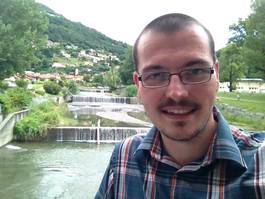 You may have figured out by now that we’re kind of nerdy. We love to track statistics about the composition contest. We’ve been so excited to see entries from all over the world! We get really excited to see entries from new countries. The winner of the solo flute category this year, Mark Wolf (for Hamarøy Troll), is from Australia! Now, we’ve had winners and/or finalists from five of the six inhabited continents (we haven’t had a finalist or winner from Africa...although we’ve had one entry) We’re looking forward to featuring Mark in a winner’s video interview which, thanks to technology, we’ll be able to complete via skype. But, we’re happy to share this composer spotlight in the meantime so you can learn more about him and his music! Q&A with Mark… What is/are your favorite “new music” piece/s and why? It is difficult to choose a single favourite piece so here are 3 out a possible 10. Arcana (1927) by Edgar VarèseArcana is highly attractive to the ear. Scored for a very large orchestra (quintuple winds), I have an appreciation for its highly selective instrumental textures, timbre, and sonorities. The polyphonic contrast ranges from full flamboyant orchestral tutti to Mahler-like moments where the piece could pass for chamber music. The Triumph of Time (1971-72) by Harrison Birstwistle, much of Bistwistle’s music has a paradoxical timeless quality. The Triumph of Time again scored for large orchestra runs for almost a half an hour and seems to have no real beginning or ending. It is as if only a portion of the whole work is witnessed. Quatre Chants pour Franchir le Seuil (1996-98) by Gérard Grisey. While studying for my Masters of Music at the Royal College of Music, London. I was introduced to the work of the French spectral composer Gérard Grisey. I was instantly hooked. This time, scored for soprano soloist and large ensemble, the title translates to Four Songs for Crossing the Threshold. A song cycle which explores the threshold between life and dealth, the mostly fragile haunting music, like meditation, releases the sole and powerfully persuades an acceptance for death. There are only a small handful of works which have had a profound impression on me as much as Grisey’s Quatre Chants, especially because of Grisey’s coincidental sudden death after completing the piece. Describe your musical background and current activities. It all started for me at age 12 when I first took up piano lessons. The following year I picked up a trumpet. Learning the classical and romantic repertoire on piano and playing trumpet in youth orchestras sparked the insatiable desire to compose my own original music. For as long as I can remember I have been particularly fascinated with how, either natural or man-made objects, are created, engineered or produced. How it is they have come into being? What are the building blocks? This brings us to the subject of my current PhD research which is focused on the parallels found between architectural ‘space’ and musical ‘time.’ Over the past three and a half years, I have composed several works which are, in a sense, translations of architectural ‘space’ into temporal musical experiences. The buildings I have chosen to translate are not just any old buildings but were carefully selected for their unconventional spatial design qualities. Architectural spatial design which questions engineering principals and on the surface, seems to defy logic. It is the extremities of architectural design which excites and fuels my need to write music. An enthusiasm equaled to when I first started composing. Do you have any upcoming events that you would like our friends and followers to know about? Recently, I was announced winner of the Etymos Ensemble 2017 Call for Scores Competition for my solo vibraphone piece Umbra-Penumbra-Antumbra. As a result, the winning work will be published by Edizioni Sconfinarte and was performed this fall at the following festivals:
My latest work, Spiral Spring for large ensemble, was performed by the players of the Queensland Symphony Orchestra conducted by Peter Luff at the Composers in Concert Event at the Queensland Conservatorium, November 19. Mark was recently accepted to the 2018 Mixtur Festival: Composition and Sound Experimentation Workshop, taking place in Barcelona, Spain in April 2018. More About Mark…. Mark Wolf is an alumnus of the Elder Conservatorium of Music, Adelaide, Victorian College of the Arts, Melbourne and the Royal College of Music, London. He also attended the ICon Arts Academy in Romania as well as the Soundstreams Emerging Composer Workshop in Toronto, and the Soundstream Emerging Composers Forum in Adelaide. Wolf's concert music has received recognition through commissions by Núcleo Música Nova, the British Harpsichord Society, clarinettist Ona Cardona, the Taylor Wessing Photographic Portrait Prize, and the Melbourne Symphony Orchestra; premièred at venues including Teatro da Reitoria Brazil, Handel House London, St Martin-in-the-Fields, the National Portrait Gallery UK and the Melbourne Recital Centre. Wolf’s work has been featured at various international festivals including: IV Bienal Música Hoje, soundSCAPE Festival, ICon Arts Festival, and the 5th and 6th Darwin International Guitar Festivals; performed by ensembles such as Ensemble Móbile, Resound Duo, RTÉ Contempo Quartet, and the Sydney Guitar Trio. In 2017, Wolf was announced the winner of both the Etymos Ensemble Call for Scores and the Flute New Music Consortium Composition Competition. He was also the winner of the 2015 ICon Arts International Composition Competition. Wolf is currently the recipient of an Australian Research Training Scholarship, undertaking his PhD candidature at Queensland Conservatorium, Griffith University. If you Like Hamaroy Troll… Hamarøy Troll 7’ flute recording 2010 Rubin’s Vase 2’ flute, saxophone, guitar, percussion, violin, cello recording 2017 Miniature Structure No. 3 3’ flute, bass trombone, vibraphone 2015 Less is a Bore 12’ flute, clarinet, violin, cello, piano work in progress Elegy 3’ flute/bass flute, oboe, clarinet/bass clarinet, bassoon recording 2007 City of Melbourne 13’ flute/piccolo, Clarinet in A/Bb, viola, french horn recording 2006 Twelve on Two 12’ piccolo/flute, 2 clarinets, tenor saxophone, recording 2002 trombone, 3 violins, viola, 2 cellos Stubborn Disposition 4’ flute, violin, piano recording 2002 Zenith 6’ flute, 2 guitars, violin, viola, cello recording 2002 Get to Know...Till MacIvor Meyn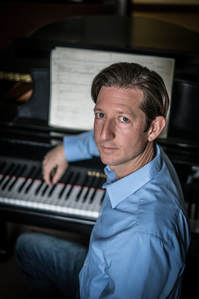 The flute and accompaniment category has traditionally been a category in which there are tons of really strong pieces and 2017 was no exception. We often find ourselves interested in performing all of the finalists works! Forces of Nature for flute and piano was a finalist work in this year’s flute and accompaniment category. Today, we’re featuring the composer, Till MacIvor Meyn! We were pleased to see that Till has more flute pieces available for us to play! Members with flute ensembles will be pleased to see he has three works for flute ensemble (a quartet and two flute choir pieces). There are recordings of Urban Ragas and Preludio Y Tango easily accessible on YouTube. His newest work, Nordic Spirits, which was premiered at NFA this summer is not recorded at this time, but we’re sure it will be recorded and posted soon! He also has a beautiful and accessible solo flute work Big Kahuna, there is a recording available on SoundCloud. We encourage you to check them out! Q&A with Till… What about new music for the flute appeals to you? New music for flute, as with new music in other genres, is really taking off today. By that, I mean that there are so many composers and new pieces out there now than there were a generation ago. Finding new music can be a very rewarding experience: You'll come across compositions that can touch you in a personal way, either through their lyrical qualities, their virtuosic elements, or combinations of those and other aspects. Happy hunting! Who is/are your favorite “new music” composer/s and why? I have many favorite living composers, and a varied musical palette of tastes. I find the music of Eric Ewazen to exhibit well-constructed melodies contained within classical-style forms that help us, as listeners, keep it all together. Frank Ticheli and Jennifer Higdon, though very different in style, are able to create dissonant, virtuosic passages that reside within tonal frameworks, and both composers write beautiful lyricism as well. Magnus Lindberg crafts monumental works with lots of jagged edges, but his music is goal-oriented, and so we have something to keep hanging onto. Describe your musical background and current activities. My own musical background is that of a singer, but as a composer and theory professor, I use the piano quite a bit as well. I grew up listening to classical music that my parents played in the home, and as I became a teen in the 1980s, I had a voracious appetite for rock and pop music. I was introduced to jazz through my choir in high school, especially the arrangements of standard tunes performed and recorded by the Manhatten Transfer. I believe that my exposure to all of these disparate genres made me the composer I am today, which is quite an eclectic mix of primarily tonal materials. What advice can you give to flutists about approaching new music in practice? My advice to flutists when approaching new music is to have an open mind. You never know what the next big thing out there will be (a composer, a style, a certain sound), and so it could be very rewarding to stretch your comfort zone a bit and work on something that you might otherwise not have tried. I also feel that communication between the composer and performer(s) is a very beneficial aspect of understanding the music; I enjoy Skyping with ensembles to work with them in rehearsal, which helps to bring the music to life--it's really fun for me and for the musicians! Do you have any upcoming events that you would like our friends and followers to know about? I have a new flute choir piece called Nordic Spirits which was recently premiered at the NFA Convention; my flute sonata (flute and piano) is called Force of Nature, and features a very modern sound with virtuosic and lyrical passages; I have a flute quartet called Urban Ragas which flute players tell me they enjoy, and I have a short tango called Preludio Y Tango for flute choir that really spices things up! I'm happy to hear from you about any of these pieces that you'd like to play. More About Till… Till MacIvor Meyn is Professor of Theory and Composition at Texas Christian University. He earned degrees from U.C. San Diego, Indiana University, and USC’s Thornton School of Music. Till’s music has had international performances in France, Italy, Cuba, China, Spain, Ukraine, and Slovenia. Performances of his music in the United States include those at Carnegie Hall (Weill Recital Hall); Clarinet Fest in Oklahoma City, MO and in Lincoln, NE; the Biennial Saxophone Congress in South Carolina; the Florida State University Festival of New Music; the SCI/CMS National Convention in San Antonio; the National Flute Association Conventions in Chicago, Washington, D.C., San Diego, and Pittsburgh; at the Manhattan School of Music; and at the Intercollegiate Men’s Choruses National Seminar at Harvard. Till was recently commissioned to compose a work for the Fort Worth Symphony Orchestra’s Kinderconcerts Series; he was a finalist in the Areon Flutes Commissioning Project for 2016; he was a featured composer at the 2015 Cliburn at the Modern series; he was a finalist in the NFA Newly Published Music Competition for ‘Urban Ragas’ (2013); and he earned first prize in the NACUSA Texas 2011 Composition Contest for Celestial Mechanics. Till’s music is published by Alliance Music Publications, GIA Publications, ECS Publishing, C. Alan Publications, and Alry Publications. He is a member of the Fort Worth Symphony Orchestra Board since 2015. For further information about Till’s music, please visit tillmeyn.squarespace.com or on Facebook: Composer Till MacIvor Meyn. If you liked Force of Nature… Nordic Spirits—9’15” 2 piccolos, 4 flutes, 2 altos, 2 basses The piece features various folk-like melodies reminiscent of Scandinavian tunes, with counterpoint and some effects. Self-published—please contact the composer at [email protected] Urban Ragas—7’45” 3 flutes, 1 alto (or bass) The work uses modal melodies that were inspired by North Indian ragas, woven contrapuntally. Published by ALRY Publications Force of Nature—14’00” Flute and piano This three-movement flute sonata has virtuosic melodies, as well as lyricism. The piano accompaniment is also very active. Self-published—please contact the composer at [email protected] Preludio Y Tango—4’00” 1 piccolo, 7 flutes, 1 alto, 1 bass This two-movement piece features a short off-kilter prelude, and then a romping tango movement. Published by ALRY Publications Big Kahuna--5’45” Solo flute The composition is reminiscent of Debussy in its use of scales; it tells the story of a wave-rider in high surf. Published by ALRY Publications Learn More About...Paul Richards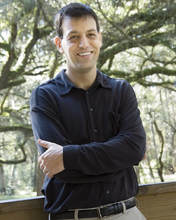 We’re always gratified that composers enter our contest more than once. We hope it is a sign that they have a positive experience. Five composers who were finalists in our inaugural 2014 competition have found success in multiple competitions. Nicole Chamberlain, Joao Pedro Oliveira, and Greg Steinke were all finalists in multiple years. This year, two former finalists joined that club, not only repeating as finalists, but their works won their respective categories! We’ll feature Cherise Leiter and Paul Richards in video interviews soon, as we do with all winners, but we wanted to make sure we featured this year’s winners quickly, so we’ve also invited them to be featured in a Composer Spotlight Interview! Below is Paul Richards’ prior Composer Spotlight. Paul was a finalist in 2014 for his piece for flute alone, Tomorrow in Australia. Tomorrow in Australia is one of our most frequently performed finalist works. FNMC members have played it at the Florida Flute Association Convention, Kentucky Flute Society Flute Festival, and the Mid-Atlantic Flute Association Convention. We’re quite certain that Entanglements for flute and piano, the winning work in this year’s flute and accompaniment category will be very popular with our members and we look forward to sharing information about performances soon! You may have heard Entanglements at this summer’s NFA Convention. Paul’s colleague at the University of Florida, Kristen Smith Stoner, has always been a loyal champion of his works and she performed it at the 2016 NFA Convention. In addition to composing Entanglements since he was last featured, Paul has just completed a new work for Pierrot ensemble entitled Ouroboros. It will be premiered in February 2018! We look forward to hearing it! Repost-Paul Richards Composer Spotlight 5/2017 We’re so lucky that so many of the composers who have been honored in the FNMC Composition Contest have taken the time to participate in the Spotlight Series. allowing our members and followers to learn more about them and their music. Today, we’re excited to share our interview with Paul Richards. The solo flute works have been particularly popular with our members and one of the most performed is Paul Richards’ Tomorrow in Australia. FNMC members have performed Tomorrow in Australia at the Florida Flute Fair, Florida State University, the Kentucky Flute Fair, and the Mid-Atlantic Flute Convention. We were not surprised to learn that Paul is particularly interested in color and timbre as Tomorrow in Australia explores the different ranges of the flute and deftly incorporates extended techniques. Q&A with Paul… Who are your favorite "new music" composers and why? So much incredible music is being made every day, and I'm pulled by so much of it. If asked tomorrow, my answer would surely change. Today: I love Andrew Norman's constant inventiveness and his playful spirit - every piece is a fantastic roller-coaster ride. I love what John Hollenbeck is doing with jazz, particularly his big band work. John Corigliano and Chris Rouse have always loomed large for me, but so do Reich and Andriessen, and Pärt and Gorecki. Lei Liang's writing is dazzling to me, too. There's no shortage! What about new music for flute appeals to you? Color. I'm not a composer who is interested in timbre for its own sake, because I just don't think that way (though I admire composers who do), but compelling timbre is a critical part of my practice. The variety that is possible with a flute makes it a really important instrument for me, as both a featured instrument and a part of larger ensembles. And by color, I don't just mean the so-called extended techniques, but the natural variety that performers bring to a piece, based on range, dynamic indication, and other clues that I put into the score. Describe your musical background and current activities. I come from a musical family. My father is a cantor and composer, and many other members of my family are professional musicians. I started with popular music and gravitated quite early to composition, writing pretty obsessively since my late teens. Recently, I've been deeply involved with the voice, with a large book of songs for soprano and piano, and two full-length operas. I've got a third opera in progress, along with some other large pieces on the horizon. More About Paul… Paul Richards is Research Foundation Professor and Head of Composition at the University of Florida. His works have been heard throughout the United States and internationally on six continents. Awards include Special Distinction in the ASCAP Rudolph Nissim Prize, the Jacksonville Symphony Orchestra’s Fresh Ink composition prize, the New Music for Sligo/IMRO composition prize, and many others. Commissions have come from orchestras, wind ensembles, choirs, and chamber ensembles, and his works have been recorded by Richard Stoltzman, the Slovak Radio Orchestra, the Moravian Philharmonic, and numerous chamber groups. Music by Paul Richards is recorded on the Meyer Media, MMC, Capstone, Mark, Pavane, OAR, and Summit labels, and is published by Carl Fischer Music, TrevCo Music, the International Horn Society Press, Jeanné, Inc., and Margalit Music. If You Liked Tomorrow in Australia… Dem Alef-beys Instrumentation: Flute/Piccolo, Oboe, Clarinet in Bb, Bassoon, Horn in F, Trumpet in C, Trombone, 2 Percussion, Piano, 2 Violins, Viola, Cello, Double Bass Date of Composition: 2008 Duration: 9’ Diversions on a Sacred Tune Instrumentation: Flute, Clarinet, Bassoon Date of Composition: 1995 Duration: 4’30” Entanglements Instrumentation: Flute and Piano Date of Composition: 2016 Duration: 8’ Harbor Music Instrumentation: Flute, Oboe, Clarinet in Bb, Alto Saxophone, Bass Clarinet, Bassoon, Horn, Vibraphone, Marimba, Piano, Violin I, Violin II, Viola, Cello, Double Bass Date of Composition: 2016 Duration: 3’30” Kaleidophone Instrumentation: Flute/Piccolo, Bb Clarinet, Bassoon, 2 Percussion, Piano/Harpsichord, Violin, Viola, 'Cello Date of Composition: 1996 (rev. 2000) Duration: 8’30” Kante le Mesma Kantika Instrumentation: Flute/Piccolo, Oboe/English Horn, Clarinet in Bb, Bassoon, Horn in F, 2 Percussion, Piano, 2 Violins, Viola, Violoncello, Double Bass Date of Composition: 1995 Duration 12’ Songs to Survive the Summer Instrumentation: Tenor and six amplified players (Flute, Violoncello, Electric Guitar, Electric Bass Guitar, Keyboard, Drum Set Date of Composition: 1993 Duration: 35’ |
AuthorThe Flute New Music Consortium is an organization dedicated to the creation and support of new music for the flute. Archives
June 2019
Categories
All
|

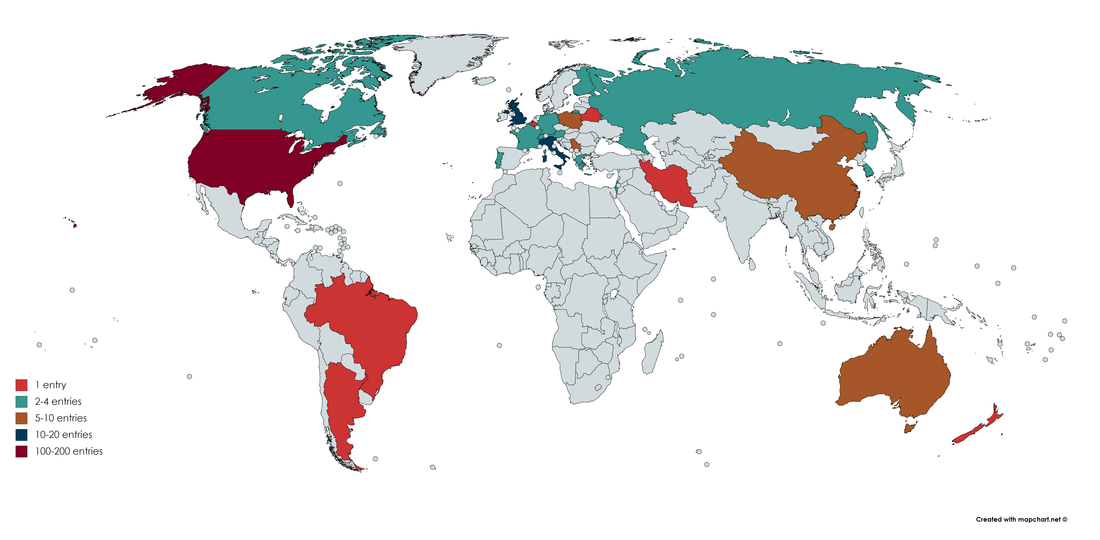
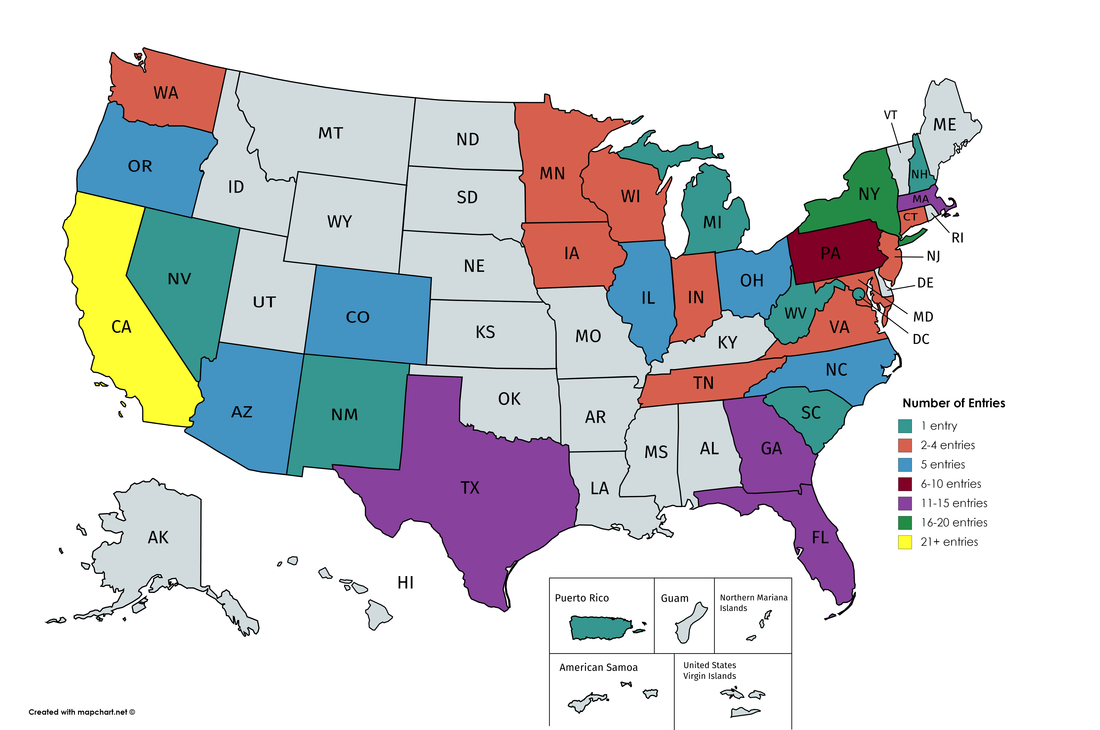
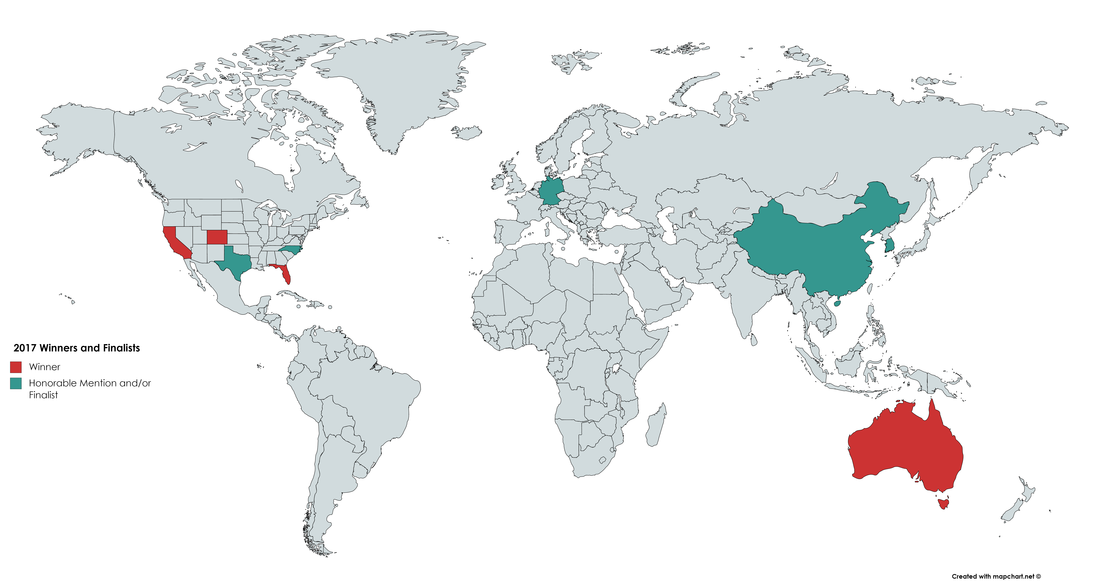
 RSS Feed
RSS Feed
